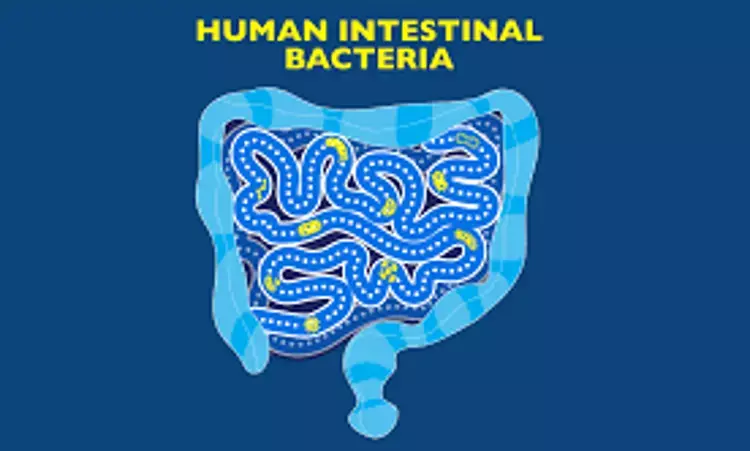- Home
- Medical news & Guidelines
- Anesthesiology
- Cardiology and CTVS
- Critical Care
- Dentistry
- Dermatology
- Diabetes and Endocrinology
- ENT
- Gastroenterology
- Medicine
- Nephrology
- Neurology
- Obstretics-Gynaecology
- Oncology
- Ophthalmology
- Orthopaedics
- Pediatrics-Neonatology
- Psychiatry
- Pulmonology
- Radiology
- Surgery
- Urology
- Laboratory Medicine
- Diet
- Nursing
- Paramedical
- Physiotherapy
- Health news
- Fact Check
- Bone Health Fact Check
- Brain Health Fact Check
- Cancer Related Fact Check
- Child Care Fact Check
- Dental and oral health fact check
- Diabetes and metabolic health fact check
- Diet and Nutrition Fact Check
- Eye and ENT Care Fact Check
- Fitness fact check
- Gut health fact check
- Heart health fact check
- Kidney health fact check
- Medical education fact check
- Men's health fact check
- Respiratory fact check
- Skin and hair care fact check
- Vaccine and Immunization fact check
- Women's health fact check
- AYUSH
- State News
- Andaman and Nicobar Islands
- Andhra Pradesh
- Arunachal Pradesh
- Assam
- Bihar
- Chandigarh
- Chattisgarh
- Dadra and Nagar Haveli
- Daman and Diu
- Delhi
- Goa
- Gujarat
- Haryana
- Himachal Pradesh
- Jammu & Kashmir
- Jharkhand
- Karnataka
- Kerala
- Ladakh
- Lakshadweep
- Madhya Pradesh
- Maharashtra
- Manipur
- Meghalaya
- Mizoram
- Nagaland
- Odisha
- Puducherry
- Punjab
- Rajasthan
- Sikkim
- Tamil Nadu
- Telangana
- Tripura
- Uttar Pradesh
- Uttrakhand
- West Bengal
- Medical Education
- Industry
Gut Microbiome Composition associated with future onset of Crohn's Disease in Healthy First-Degree Relatives

Gut Microbiome Composition is associated with future onset of Crohn's Disease in Healthy First-Degree Relatives suggests a new study published in the Gastroenterology
The cause of Crohn’s Disease (CD) is unknown, but the current hypothesis is that microbial or environmental factors induce gut inflammation in genetically susceptible individuals, leading to chronic intestinal inflammation. Case-control studies of CD patients have catalogued alterations in the gut microbiome composition; however, these studies fail to distinguish if the altered gut microbiome composition is associated with initiation of CD or is the result of inflammation or drug treatment.
In this prospective cohort study, 3483 healthy first-degree relatives (FDRs) of patients with CD were recruited to identify the gut microbiome composition that precedes the onset of CD and to what extent this composition predicts the risk of developing CD. We applied a machine learning approach to the analysis of the gut microbiome composition (based on 16S rDNA sequencing) to define a microbial signature that associates with future development of CD. The performance of the model was assessed in an independent validation cohort.
Results
In the validation cohort, the microbiome risk score (MRS) model yielded a hazard ratio (HR) of 2.24, 95% CI [1.03, 4.84], and a p-value =0.04, using the median of the MRS from the discovery cohort as the threshold. The MRS demonstrated a temporal validity by capturing individuals that developed CD up to five years prior to disease onset (AUC > 0.65). The five most important taxa contributing to the MRS included Ruminococcus torques, Blautia, Colidextribacter, an uncultured genus-level group from Oscillospiraceace, and Roseburia.
Conclusion
This study is the first to demonstrate that gut microbiome composition is associated with future onset of CD and suggests that gut microbiome is a contributor in the pathogenesis of CD.
Reference:
Juan Antonio Raygoza Garay, Williams TurpinSun-Ho Lee, Kenneth Croitoru , Wei Xu. Gut Microbiome Composition is associated with future onset of Crohn’s Disease in Healthy First-Degree Relatives. The CCC GEM Project Research Consortium. Published:May 30, 2023DOI: https://doi.org/10.1053/j.gastro.2023.05.032
Dr. Shravani Dali has completed her BDS from Pravara institute of medical sciences, loni. Following which she extensively worked in the healthcare sector for 2+ years. She has been actively involved in writing blogs in field of health and wellness. Currently she is pursuing her Masters of public health-health administration from Tata institute of social sciences. She can be contacted at editorial@medicaldialogues.in.
Dr Kamal Kant Kohli-MBBS, DTCD- a chest specialist with more than 30 years of practice and a flair for writing clinical articles, Dr Kamal Kant Kohli joined Medical Dialogues as a Chief Editor of Medical News. Besides writing articles, as an editor, he proofreads and verifies all the medical content published on Medical Dialogues including those coming from journals, studies,medical conferences,guidelines etc. Email: drkohli@medicaldialogues.in. Contact no. 011-43720751


